Time hasn’t dulled their sound, but the gatekeepers keep ignoring them.
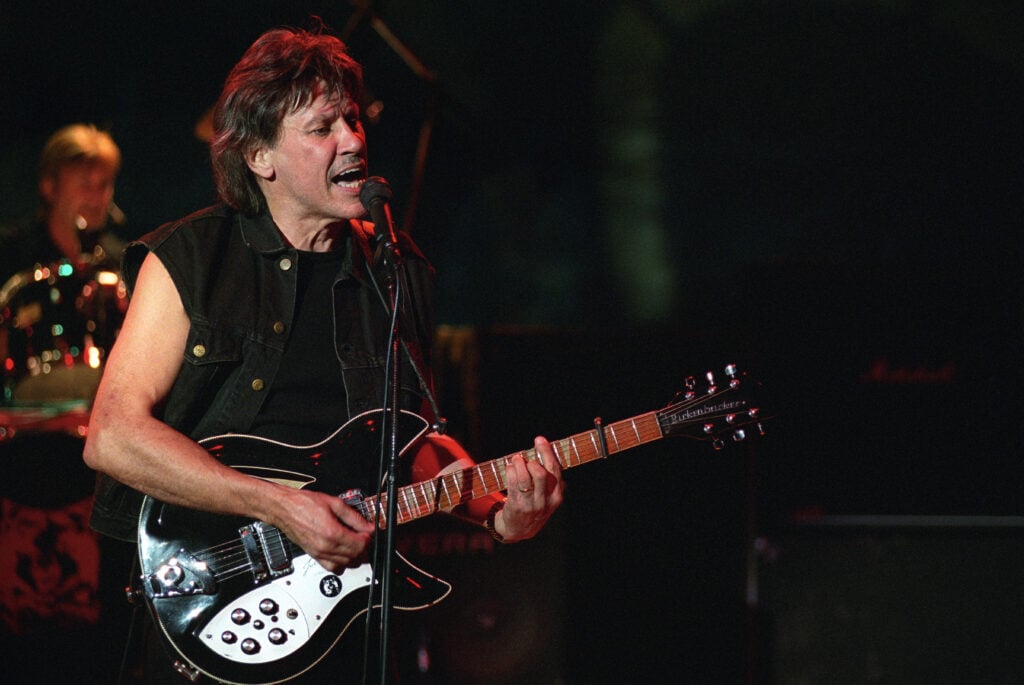
Classic rock defined a generation, soundtracked countless lives, and laid the groundwork for nearly every genre that came after it. Yet somehow, year after year, some of its most beloved artists remain overlooked by the Rock & Roll Hall of Fame. It’s not about popularity—these acts have decades of fan devotion, chart-topping records, and undeniable influence. They’ve filled stadiums, shaped styles, and inspired entire movements in music. Still, no induction.
Some say the Hall has shifted its priorities, favoring trendier or more diverse picks over legacy acts. Others believe it’s just plain snobbery, turning a blind eye to “dad rock” while celebrating newer names with half the impact. Whatever the reason, it stings to see these icons still waiting for the recognition they clearly earned. These 10 artists have paid their dues many times over—and their absence from the Hall isn’t just surprising, it’s borderline insulting.
1. Warren Zevon kept it raw, witty, and unforgettable.
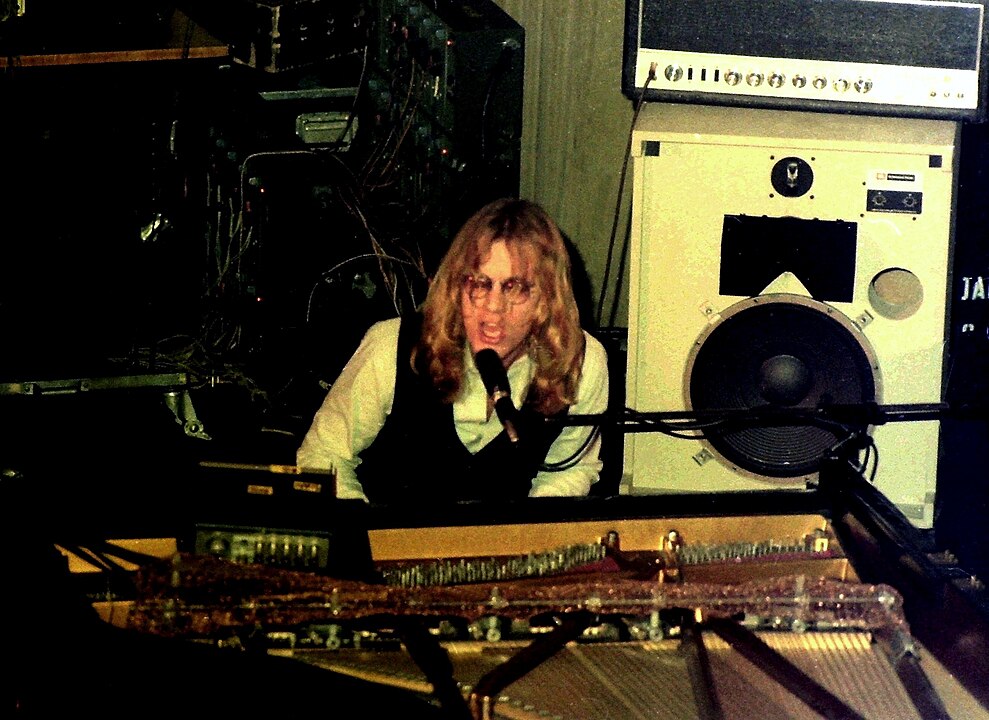
Warren Zevon wasn’t flashy, but his songs cut deep and left a mark that never faded. He was part poet, part rocker, and completely unafraid to be strange, dark, or brutally honest. Tracks like “Lawyers, Guns and Money” and “Werewolves of London” made him a cult favorite, but it was his deeper catalog that showed his genius—funny, tragic, and razor-sharp all at once.
Fans and critics alike have been puzzled by his continued exclusion. Zevon had the respect of his peers, collaborated with legends, and left behind a legacy that still influences singer-songwriters today. His terminal diagnosis brought renewed attention to his work, and yet the Hall continues to look the other way, according to The Guardian. For an artist who sang so truthfully about life’s weirdest corners, he deserves more than just posthumous praise—he deserves a permanent spot.
2. Grand Funk Railroad powered arenas before it was cool.
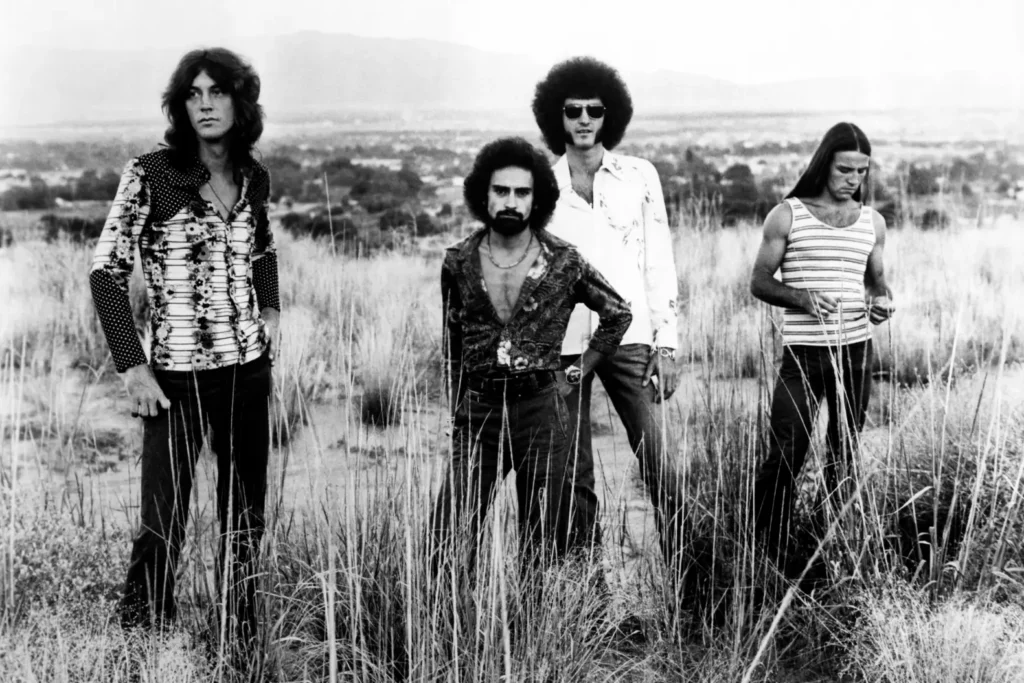
Before arena rock became a label, Grand Funk Railroad was already selling out massive venues and making teenage hearts pound with their gritty, working-class anthems. They didn’t care about critical praise—they cared about the crowd. And the crowd loved them. Songs like “We’re an American Band” and “Some Kind of Wonderful” still get fists pumping decades later.
Despite their commercial success and loyal fanbase, critics never gave them much credit, and that snub carried over to the Hall. But their influence on live performance, touring culture, and the heartland rock sound is undeniable, as mentioned in Rolling Stone. They showed what it meant to be loud, proud, and blue-collar rock stars before it became fashionable. They might not be media darlings, but that doesn’t mean they don’t belong.
3. Jethro Tull blended folk and prog in ways no one dared.
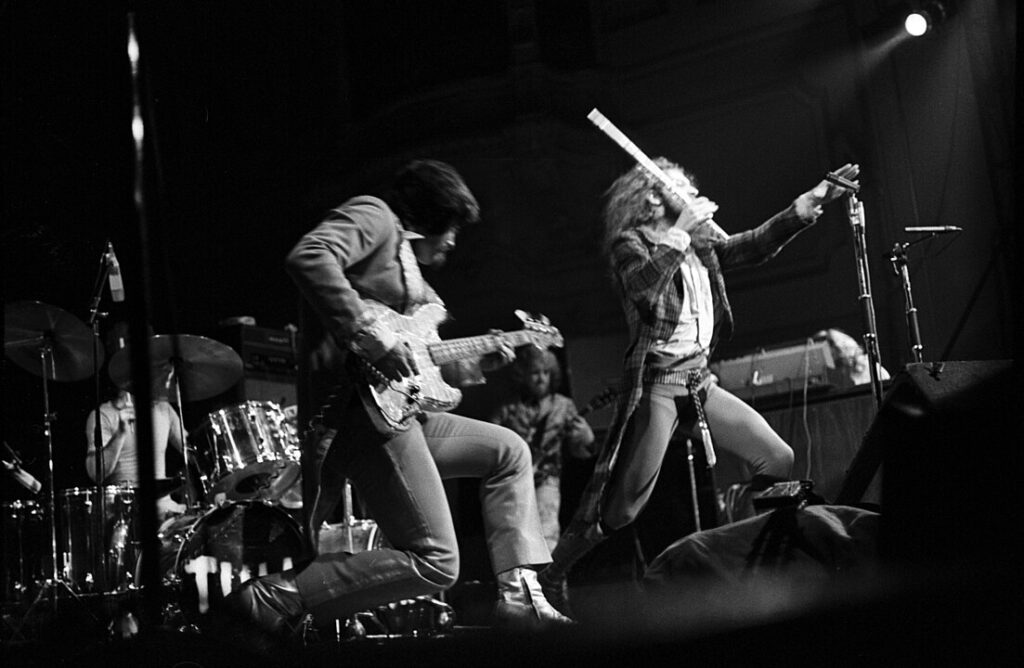
With a flute at the forefront and lyrics that felt like literature, Jethro Tull broke all the rules—and made it work. They weren’t just prog rockers. They were medieval, theatrical, poetic. Albums like Aqualung and Thick as a Brick weren’t just records—they were full experiences, complex and oddly timeless.
Critics never quite knew what to make of them, and maybe that’s part of the problem. They didn’t fit neatly into a box. But fans stuck around, packing venues and obsessing over every layered track. Ian Anderson’s onstage persona, the genre-bending music, and the sheer audacity of it all should’ve secured them a place long ago, as stated by Loudwire. Being too original shouldn’t be a disqualifier—it should be the reason they’re honored.
4. Thin Lizzy gave us dual guitars and real swagger.
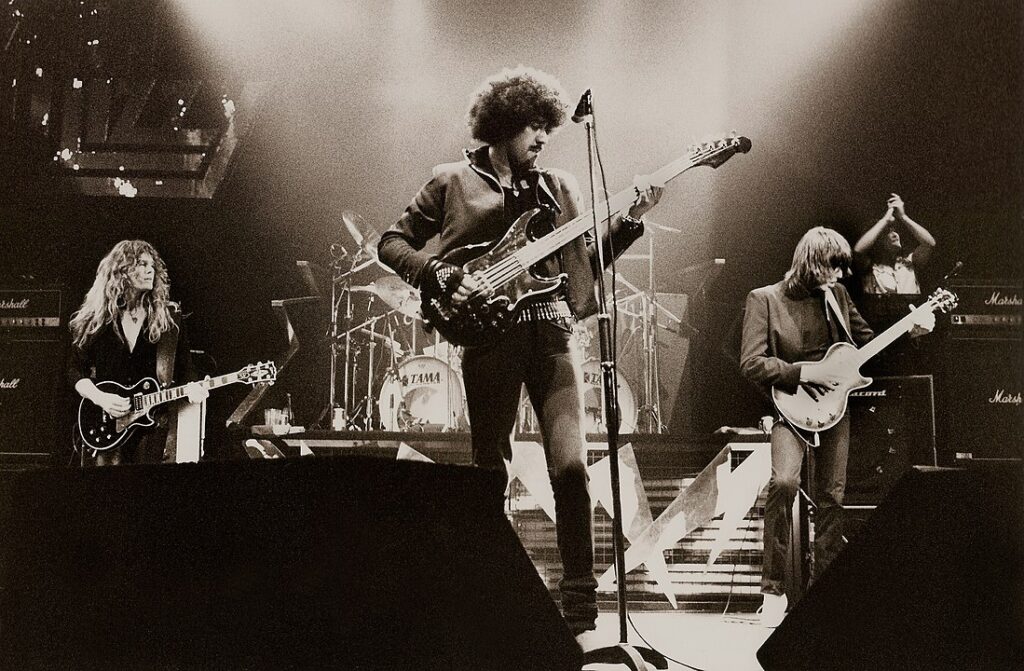
Thin Lizzy’s influence is massive, even if it’s sometimes under the radar. The dual guitar harmonies they helped popularize became a staple in hard rock and metal. Songs like “The Boys Are Back in Town” and “Jailbreak” are anthems for a reason—tight, muscular, and brimming with attitude. Phil Lynott’s presence, voice, and songwriting gave the band a soulful edge that set them apart.
They had all the elements: style, substance, and songs that still slap. Yet, they’re still on the outside looking in. Their live shows were electric, their records iconic, and their sound carved a path for bands ranging from Iron Maiden to Guns N’ Roses. If influence and timeless appeal mean anything, it’s time the Hall finally let them in.
5. Blue Öyster Cult brought brains to hard rock.
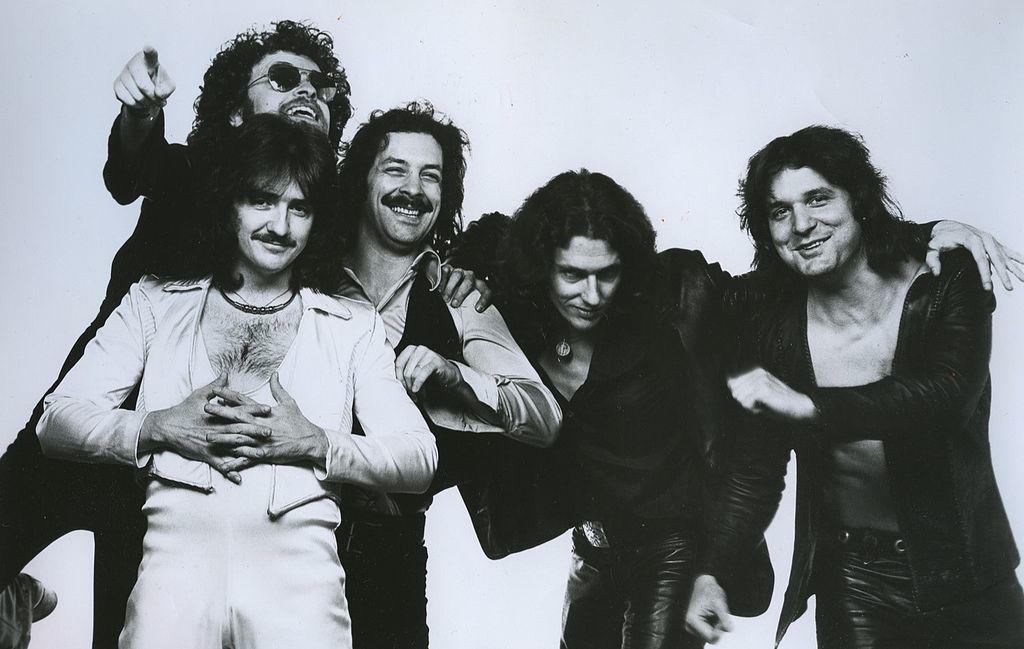
They weren’t just loud—they were clever. Blue Öyster Cult gave us “(Don’t Fear) The Reaper,” but their catalog runs deeper than that eerie classic. They brought a literary, sometimes sci-fi bent to their songwriting, mixing heavy riffs with surreal storytelling. They were weird in the best way, and they made it sound effortless.
Their blend of metal, psychedelia, and pop made them pioneers, but they’ve never gotten the nod. Maybe it’s because they didn’t conform, or maybe it’s because their biggest hit is so iconic it overshadowed the rest. Either way, they’ve earned a spot. Few bands straddled the line between headbanging and heady quite like they did.
6. The Guess Who captured rock’s radio glory years.
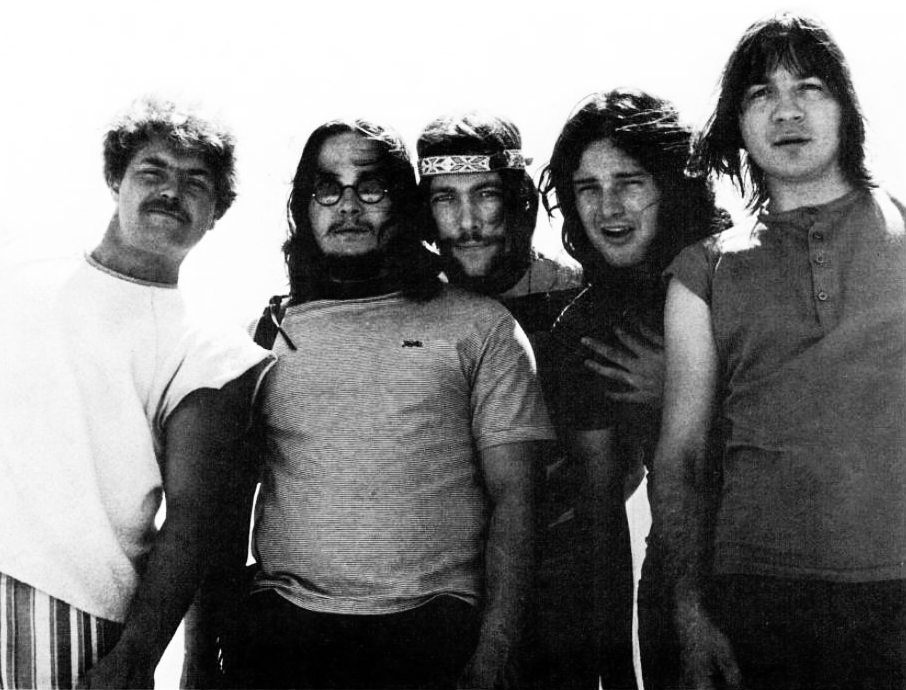
The Guess Who made radio magic. Songs like “American Woman,” “These Eyes,” and “No Time” are burned into the brains of anyone who grew up with a car radio in the ’70s. They were catchy, polished, and somehow still full of personality. Burton Cummings had one of the most distinct voices in rock, and Randy Bachman’s guitar work brought serious weight.
Despite multiple hits and years of success, they often get overshadowed by other acts from the same era. But their music was foundational to the golden era of FM radio. They wrote big songs that felt easy but carried muscle underneath. The fact that they’re still absent from the Hall feels like a weird oversight—especially when you realize how many of their tracks still get airplay today.
7. Iron Maiden carried metal across the globe.
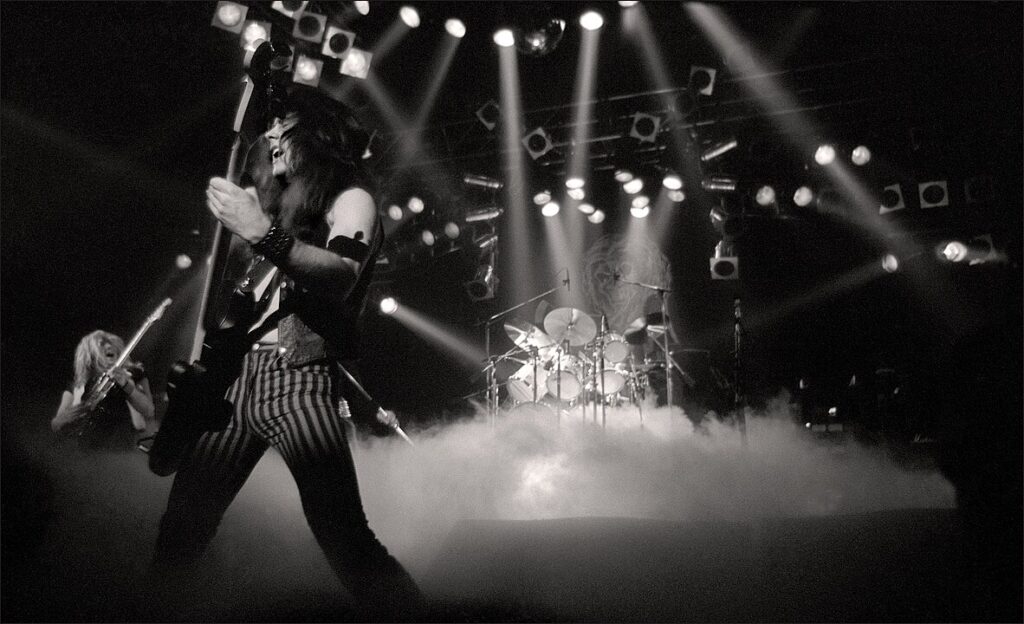
They’ve sold over 100 million albums, inspired generations of bands, and turned Eddie the Head into a cultural icon. Iron Maiden built a legacy on epic songs, jaw-dropping live shows, and a fanbase that borders on religious devotion. Bruce Dickinson’s voice, the galloping bass lines, and those intricate guitar solos all add up to something unmistakable.
The Hall’s resistance to metal is well known, but Iron Maiden isn’t just any metal band—they’re the standard. Their influence spreads across continents, genres, and decades. Keeping them out doesn’t just snub a band. It snubs an entire movement. If longevity, originality, and pure musicianship count, their induction is long overdue.
8. Bad Company gave rock radio some of its finest moments.
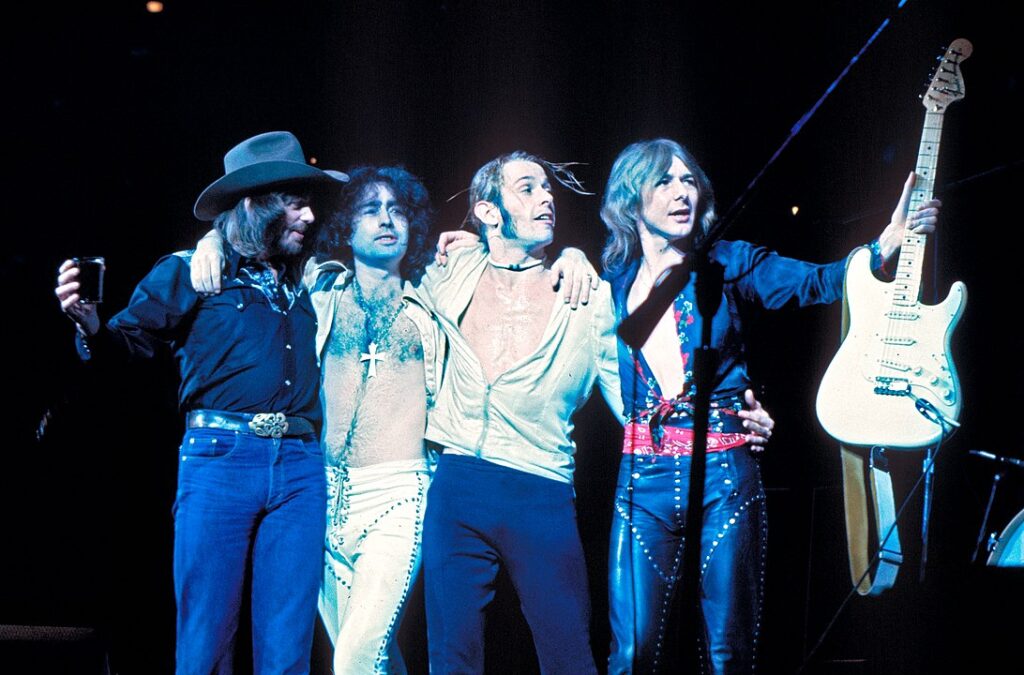
Every rock station on Earth has played “Feel Like Makin’ Love,” “Shooting Star,” and “Can’t Get Enough” more times than anyone can count. Bad Company’s songs weren’t just hits—they were blueprints for what a great rock tune should sound like. Simple, honest, powerful. Paul Rodgers’ voice could raise goosebumps, and the band behind him delivered punch after punch.
Despite their dominance during the ’70s and enduring popularity, Bad Company often gets brushed off as just another classic rock band. But they were more than that—they helped define the sound of an era. Their songs still pack arenas, still get covered, and still feel alive when they hit the right moment. That kind of staying power should matter more than trends.
9. The Doobie Brothers barely scraped in—Tom Johnston still deserves more.
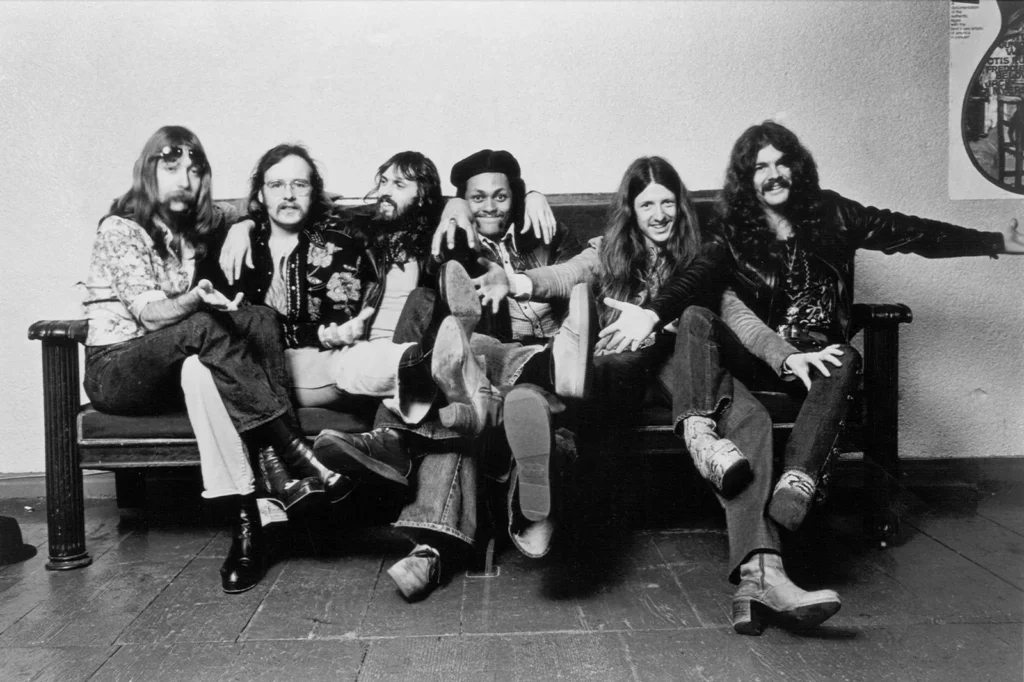
Yes, the Doobie Brothers finally made it into the Hall, but their recognition felt strangely overdue and oddly incomplete. Tom Johnston, their original frontman and the voice behind hits like “China Grove” and “Listen to the Music,” helped build the foundation of their success. His blend of boogie rock, soul, and sharp songwriting shaped their early sound before Michael McDonald took things in a new direction.
Johnston’s contribution often gets downplayed, which feels unfair considering how central he was to their breakthrough. His guitar work, raspy vocals, and writing style gave the band its first identity. A deeper acknowledgment of his role—not just a broad induction—would go a long way in setting the record straight. It’s time the Hall gave credit where it’s really due.
10. Meat Loaf and Jim Steinman made rock theatrical again.
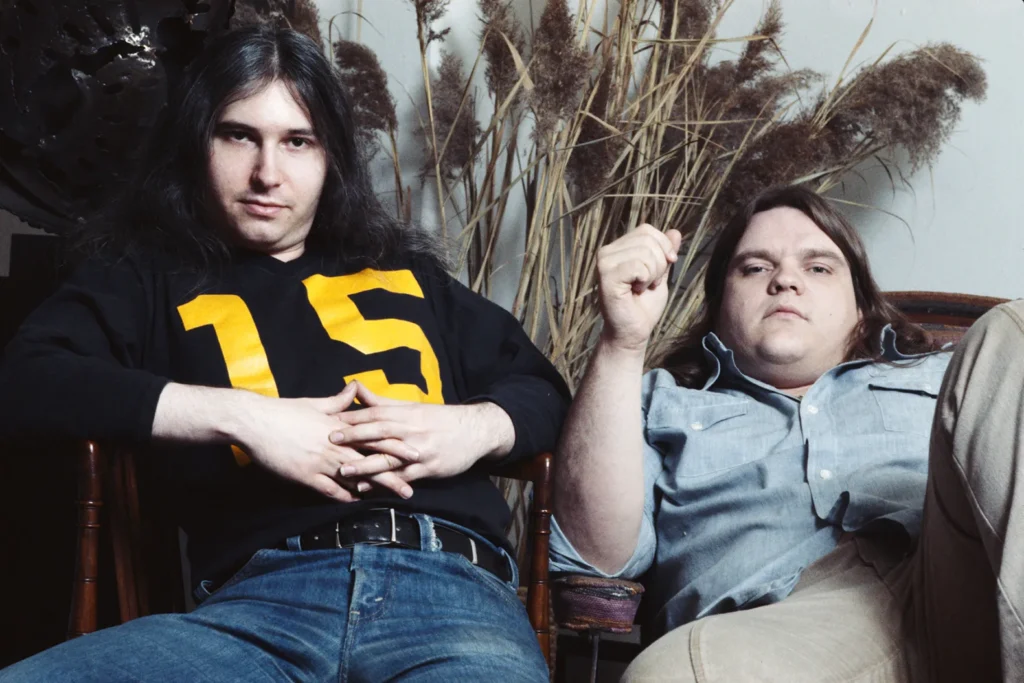
Bat Out of Hell wasn’t just an album—it was a rock opera packed with melodrama, heartbreak, and bombastic power chords. Meat Loaf’s powerhouse vocals combined with Jim Steinman’s gothic, over-the-top songwriting to create something totally unique. It was too theatrical for some, too weird for others—but fans couldn’t get enough.
Despite selling tens of millions of albums and leaving a massive cultural mark, neither Meat Loaf nor Steinman has made it into the Hall. Maybe they were too dramatic, too outside the usual box. But that’s what made them unforgettable. They turned rock into a stage play, complete with soaring solos and gut-punch lyrics. Overlook them, and you overlook the boldest kind of creativity the genre has ever seen.
